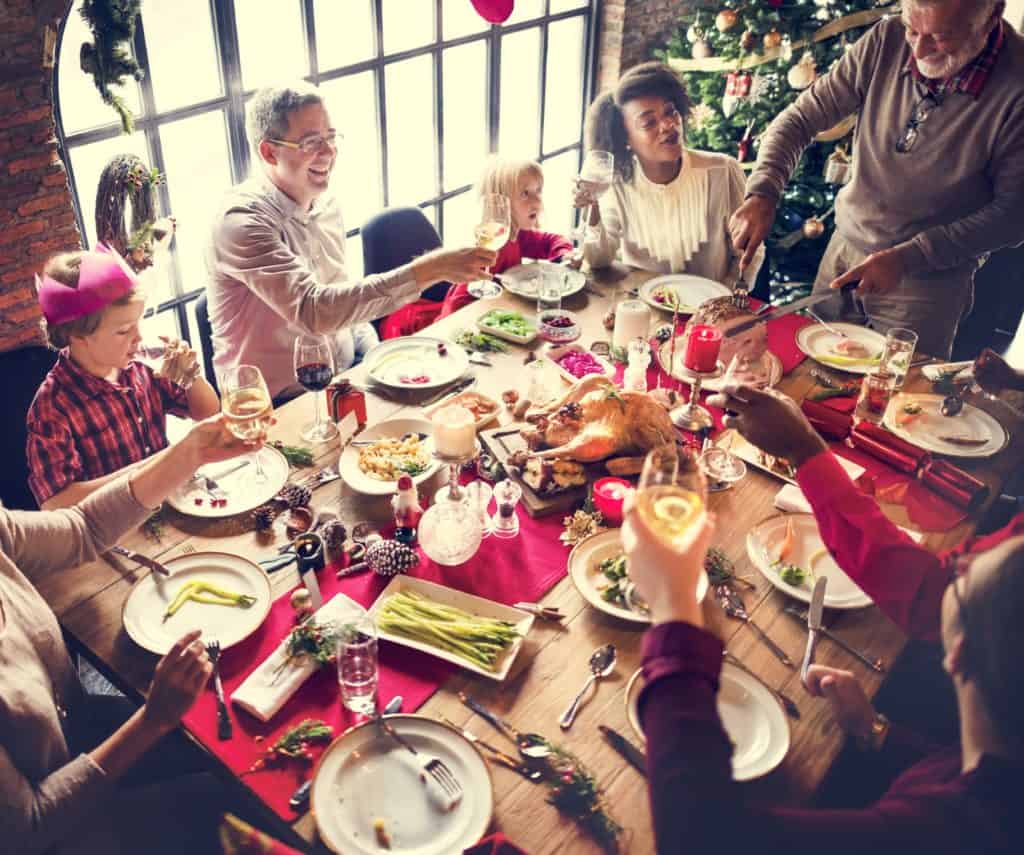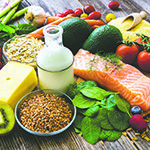
The holidays offer an opportunity to spend time with family and friends. Usually, food is at the center of these gatherings. Unfortunately, many of our favorite holiday foods are not the healthiest options, and with so many social gatherings, it is easy to overindulge from Halloween to New Year’s. According to the National Institutes of Health, people gain about one to two pounds due to holiday eating.
Enjoying the foods you eat during the holidays does not necessarily have to come with added weight. You can eat healthy during the holidays through a combination of being mindful of what you eat and a couple of strategies.
Create Healthier Versions of Your Favorites
If you are cooking or taking food to your family holiday meals, you can do some slight modifications to make your favorite foods a little healthier. Many traditional holiday recipes can be made healthier by adjusting the ingredients. For example, by refrigerating gravy, you can harden and skim the fat right off. Another holiday favorite, turkey, can be made very healthy and lean by just not eating the skin. Your mashed potatoes can be made healthier by using skim milk and chicken broth instead of whole milk and butter. There are many substitutions out there to cut down on fat and calories in your favorite holiday dishes. And with many of them, you can’t even taste a difference!
Schedule Time to Exercise
The holidays really throw off our regular schedules. Make sure to plan time for exercise. Exercising can help prevent weight gain and offset excess eating. Try taking brisk walks a couple of times a day – or make walking a family activity after a meal.
Weigh Yourself
Periodically weigh yourself – at least once or twice a week. I know this is not that popular, especially during the holidays, but self-monitoring is an important tool to make sure you don’t just blindly add on the pounds. People gain weight and then spend half or most of the next year trying to lose that extra weight. Over the years, when the pounds accumulate, people go from one BMI category to the next.
Don’t Skip Meals
When you know a big meal is coming, do not skip a meal to try to “make room.” It is very important to not skip meals because it can lead to overeating. Try eating a light protein snack such as veggies and hummus or light dressing, or maybe fruit and cheese before your meal. This will make you less tempted to overindulge.
Plan Your Meal
It is not unusual to go for seconds or even thirds during a big holiday meal. However, overeating leads to weight gain and that awful “too-full” feeling afterward. A great strategy is starting your meal off with vegetables and salad. This can help you eat fewer calories overall and even make you fuller faster. Also, make sure to eat slowly. By savoring and enjoying each bite, it gives your body enough time to tell your brain that you are satisfied. If you accidentally overeat during one meal, make sure to eat lighter at the next meal.
Limit Alcoholic and Sugary Drinks
The social environments that make the holiday season so special also make it easy to overdo it on drinks. Keep in mind the calories you are drinking. When you add your beverage calories to your food calories, it might surprise you how large that number can grow! Limiting your alcohol and sugary drink consumption is a good strategy when watching your weight.
The holidays are a special time with friends and family. By giving just a little attention to your eating habits over the holidays, you can help ensure your weight goals don’t get off track.
Joyce Paulson is an internal medicine physician at UCF Health focused on helping patients live healthier lives through lifestyle changes combined with the most advanced healthcare. Find out more at ucfhealth.com.


